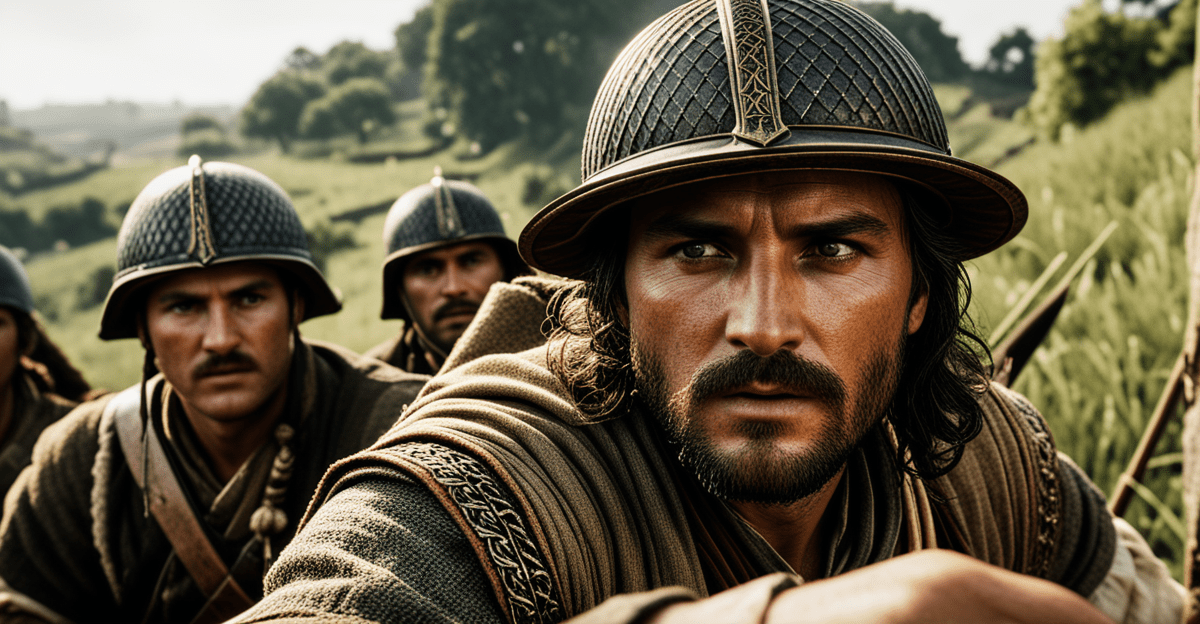The Role of Historical Video Games in Learning History
Historical video games offer a unique platform for learning history by combining interactive gameplay with storytelling. Unlike traditional methods, these games foster deeper engagement by letting players actively participate in historical events rather than passively reading about them. This active involvement helps solidify understanding and retention of historical facts.
The educational value of historical video games lies in their ability to present complex historical contexts in an accessible, immersive way. Players can explore different perspectives and scenarios, which enhances empathy and critical thinking. For example, games often simulate economic systems, social hierarchies, or political struggles, allowing learners to see how decisions influenced historical outcomes.
Also to discover : How Do Video Games Influence Cognitive Skills?
Moreover, interactive gameplay encourages players to experiment with historical choices, which promotes a deeper connection to the material. This dynamic approach contrasts with rote memorization, appealing especially to younger audiences. The blend of storytelling, visuals, and mechanics provides a multi-sensory learning experience that textbooks cannot replicate.
By integrating accurate details within engaging narratives, historical video games serve as powerful educational tools with great potential for enhancing traditional history education.
Also to read : How are UK developers integrating blockchain into gaming?
The Role of Historical Video Games in Learning History
Historical video games offer an innovative approach to learning history by combining interactive gameplay with educational content. Unlike passive methods such as reading textbooks, these games engage players actively, encouraging exploration and decision-making within historically inspired settings. This interactivity fosters deeper emotional and cognitive connections with historical events, making the information more memorable.
One of the core advantages of historical video games is their ability to simulate complex historical environments and social dynamics. For example, players can experience life in a particular era, understand political conflicts firsthand, or manage resources during wartime. This firsthand immersion provides a perspective traditional learning methods often lack.
Moreover, the educational value of these games lies in their capacity to present history as a multidimensional story, not just dates or facts. They motivate learners to ask questions, investigate cause-and-effect relationships, and reflect on historical contexts. Consequently, historical video games serve as a complementary resource that enhances curiosity and knowledge retention while appealing to diverse learning styles.
Historical Accuracy and Representation in Video Games
Historical video games face the challenge of balancing historical accuracy with engaging gameplay. Developers often navigate between strict adherence to facts and creative license to enhance storytelling and player immersion. While some games prioritize authenticity, others adjust historical details to simplify complex events or emphasize narrative flow.
One key approach to maintaining historical accuracy is thorough research involving historians and experts. This collaboration helps ensure the depiction of history is respectful and informative. For example, many games replicate architecture, costumes, and cultural elements with impressive detail, boosting realism.
However, even well-researched games encounter challenges. Limitations in technology, time constraints, and the need for captivating gameplay lead to compromises that can alter or omit historical facts. This raises questions about how much deviation is acceptable without misleading players.
Video game representation of history also involves addressing diverse perspectives, a task not always fully achieved. Some games have been criticized for perpetuating stereotypes or focusing narrowly on dominant narratives. Despite these challenges, the ongoing conversation between developers, historians, and players strives to improve both historical fidelity and inclusivity in the medium.
Historical Accuracy and Representation in Video Games
Striking a balance between historical accuracy and engaging gameplay is a key challenge in the depiction of history through video games. Developers often face the difficult choice of adhering strictly to facts or incorporating creative license to enhance narrative and player experience. This tension shapes the video game representation of past events and eras.
Many historical games strive for authenticity by consulting historians and incorporating genuine artifacts, costumes, and settings. For example, a game might meticulously recreate architectural styles or political events to immerse players in a believable world. However, some level of modification is usually necessary to simplify complex history or to maintain player interest.
Notable titles excel in blending accuracy with storytelling. They provide layered experiences where players can explore significant moments without overwhelming detail. Yet, the need for entertainment sometimes leads to altered timelines or dramatized characters, which can mislead players if not critically assessed.
Overall, the depiction of history in video games requires careful negotiation between fact and fiction, making it essential for players and educators to recognize both the value and limitations of these portrayals. This awareness enhances the educational impact without sacrificing enjoyment.
The Role of Historical Video Games in Learning History
Historical video games stand out in fostering deeper engagement with historical events through their interactive gameplay. Unlike traditional learning methods, which often rely on passive absorption of facts, these games immerse players in dynamic environments where choices influence outcomes. This active involvement encourages players to think critically about historical contexts while emotionally connecting with the material.
The educational value of historical video games extends beyond mere entertainment. By simulating social, political, and economic systems, these games offer learners a multidimensional understanding of history. For example, managing resources or negotiating alliances lets players grasp complex cause-and-effect relationships more intuitively than textbooks. This interactivity reinforces memory retention and comprehension by encouraging experimentation and reflection.
Additionally, historical video games motivate learners through challenge and reward mechanisms embedded in gameplay. This fosters sustained attention and curiosity, which traditional lectures may struggle to achieve. As a result, video games provide an accessible entry point for diverse learners, making history more relatable and compelling. Through this blend of engagement and education, historical video games serve as effective tools for enhancing learning history in innovative ways.
The Role of Historical Video Games in Learning History
Historical video games uniquely enhance learning history by offering interactive gameplay that fosters deeper engagement with past events. Unlike passive study methods, games immerse players in decision-making processes within historical contexts, encouraging active exploration and emotional connection. This engagement supports better retention of facts and promotes critical thinking.
The educational value of these games lies in their ability to simulate complex social, political, and economic dynamics realistically. For instance, players might manage resources during war or navigate diplomatic relations, gaining insights into cause-and-effect relationships. Such experiences cultivate empathy by exposing learners to diverse perspectives often absent from textbooks.
Moreover, historical video games provide a multi-sensory learning environment through visuals, narrative, and mechanics. This combination appeals to various learning styles and sustains motivation. By integrating historically accurate details within accessible gameplay, these games complement traditional instruction and inspire curiosity for further study. Their unique blend of entertainment and education positions them as valuable tools in both formal and informal history learning settings.
The Role of Historical Video Games in Learning History
Historical video games uniquely foster deeper engagement by combining interactive gameplay with educational content. Unlike traditional methods that often rely on passive reading, these games actively immerse players in historical settings. This involvement enhances curiosity and encourages players to explore cause-and-effect relationships, which is crucial for learning history effectively.
The educational value of video games lies in their ability to simulate complex social, political, and economic systems that textbooks cannot fully capture. For example, managing resources or making diplomatic decisions allows players to internalize historical dynamics firsthand. This approach strengthens understanding and retention by turning abstract facts into lived experiences.
Moreover, interactivity promotes experimentation and reflection, providing a hands-on way to grasp historical consequences. Players can test different strategies or outcomes, which cultivates critical thinking skills essential for interpreting history. The challenge and reward systems embedded in gameplay further motivate sustained learning, making history accessible and engaging for diverse learners.
In summary, the blend of immersive storytelling, decision-making, and simulated environments defines the distinctive educational benefits of historical video games, contributing meaningfully to contemporary approaches to learning history.
The Role of Historical Video Games in Learning History
Historical video games leverage interactive gameplay to engage players actively with past events, significantly enhancing the educational value of history lessons. Unlike traditional methods that often rely on passive reception of facts, these games immerse learners in decision-making processes embedded within authentic historical contexts. This hands-on involvement promotes deeper understanding and encourages players to think critically about historical causes and consequences.
One distinct advantage is how gameplay allows players to experiment with social, political, or economic variables, fostering intuitive grasp of complex dynamics. For example, managing resources during a conflict or navigating diplomatic tensions within a game creates an experiential learning environment that is both memorable and instructive.
Additionally, historical video games provide multisensory stimulation through rich narratives, visuals, and mechanics, appealing to diverse learning styles. This combination sustains motivation and curiosity, often leading players to explore real-world history further. By integrating accurate settings and scenarios, these games serve as effective complements to traditional education, delivering unique learning history experiences that blend engagement with substance.
The Role of Historical Video Games in Learning History
Historical video games significantly enhance learning history by transforming passive content consumption into active exploration. The interactive gameplay inherent in these games fosters deeper engagement with historical events, encouraging players to experiment with decisions that affect outcomes. This immersive involvement enhances critical thinking and emotional connection, making historical facts more relatable and memorable.
The educational value of historical video games lies in their ability to simulate complex systems—social, political, and economic—that traditional methods often fail to capture. By allowing players to manage resources, negotiate alliances, or navigate conflicts, these games provide a hands-on understanding of historical dynamics. For example, players can personally experience the challenges of diplomacy or war economics, grasping cause-and-effect relations firsthand.
Unlike conventional learning tools, historical video games accommodate diverse learning styles through their multi-sensory approach, combining narrative, visuals, and player choice. This accessibility motivates sustained attention and curiosity, appealing especially to younger audiences. Consequently, the unique educational value of historical video games positions them as powerful supplements to traditional history education, making complex past events tangible and engaging.











